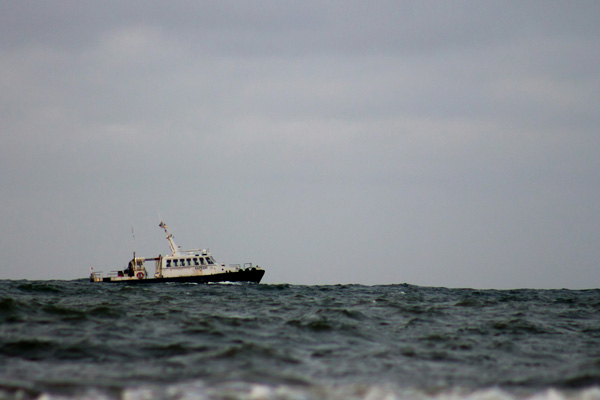A boat with 300 passengers sinks in Nigeria

[An image of a boat in tumultuous water. Photo Credit to Unsplash]
A boat carrying around 300 passengers capsized on the Niger River, Africa’s third-longest river, in Niger State, Nigeria, on the night of October 1st.
Most passengers were women and children, who had been returning from a religious festival—a celebration of the Prophet Muhammad’s birth—in Gbajibo Village when the vessel sank around 8:30 PM local time.
This tragic event has resulted in at least 60 confirmed deaths, with more than 100 individuals still unaccounted for.
The vessel, a locally constructed wooden boat, was severely overloaded according to local officials.
“The boat was designed to hold only 100 passengers,” said Salihu Garba, the Director of Relief and Rehabilitation at Niger State Emergency Services.
Ibrahim Husaini, spokesman for the Niger State Emergency Agency, noted that the exact number of passengers remains uncertain due to the absence of a passenger register.
Approximately 150 people have been rescued thus far.
Rescue operations began promptly after the accident, with local divers and community volunteers joining emergency personnel in their efforts.
Government officials have expressed gratitude for the swift response, though rescue efforts were hampered by a lack of resources including insufficient life jackets.
“There’s no one using life jackets in Niger State … these are rural areas; they don’t even know what life jackets are all about,” a Niger state official said, emphasizing the need for education and safety training.
The incident has reignited debates over the longstanding issues of water safety in Nigeria, particularly as many local communities often overlook load limits and travel guidelines.
Adding to the hazardous conditions, the accident occurred amid rising water levels caused by extreme rainfall.
Such accidents are not uncommon in the region.
In September 2023, about 30 people lost their lives when a boat capsized in the same area.
That incident involved passengers traveling to farms for harvest.
The Nigerian hydrological agency has issued warnings about potential flooding, raising concerns about the safety of local communities reliant on river transport.
As communities mourn their losses, the disaster serves as a stark reminder of the urgent need for improved safety standards and regulations in Nigeria’s water transport system.
Local authorities face mounting pressure to implement decisive measures to protect citizens’ lives.

- NaEun Hong / Grade 9
- Chadwick International

![THE HERALD STUDENT REPORTERS [US]](/assets/images/logo_student_us.png)
![THE HERALD STUDENT REPORTERS [Canada]](/assets/images/logo_student_ca.png)
